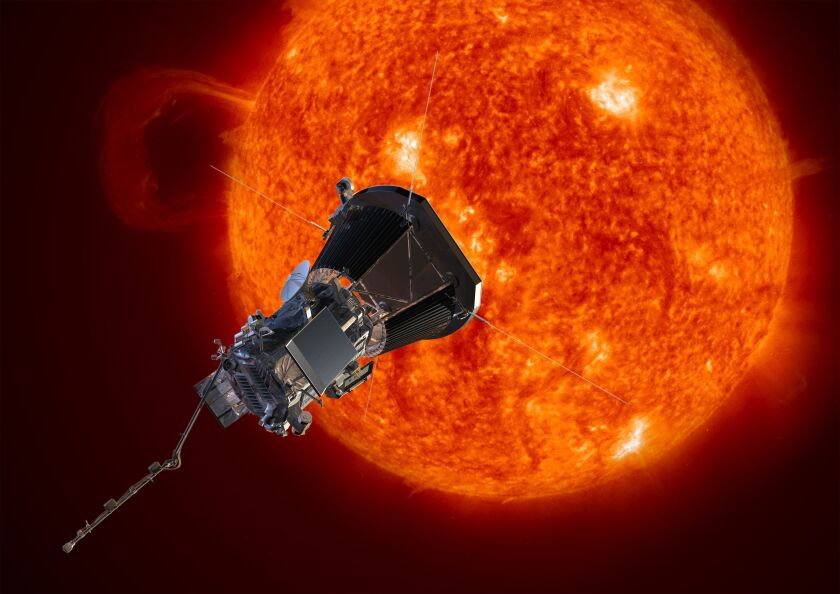Next year, a NASA probe traveling at about 118 miles a second, will embark on a journey to “touch the sun,” coming closer to our star than any previous space craft.
“I like to call it the coolest, hottest mission under the sun,” said Nicola Fox, mission project scientist, speaking at the University of Chicago on Wednesday.
And as that probe hurtles toward its destination — the sun’s atmosphere — it will be branded with the name of one of the world’s great solar researchers, Eugene Parker, a University of Chicago physicist and professor emeritus.
It’s the first time in NASA’s history that a spacecraft has been named after a living researcher, officials said in making the announcement Wednesday.
Some 60 years ago, academics called Parker’s claim for the existence of solar wind nonsense.
“When I wrote the first paper, as far as I was concerned, it was open and shut,” Parker said in a recent short documentary. “I remember how upset the referee was. . . . He said, ‘This is ridiculous. Before you write a scientific paper, you should at least take the trouble of going to the library and reading up on the subject.’ ”
Satellite technology would later validate his theory, one that fundamentally changed human understanding of space.
“I’m greatly honored to be associated with such a heroic scientific mission,” the 89-year-old Parker told those gathered at U. of C.
The Parker Solar Probe is set to launch in 2018 and will fly seven times closer to the sun than any previous spacecraft.
“We kind of gradually get closer and closer and surf more and more gracefully in toward the sun until we’re just under 4 million miles [away],” Fox said.
That distance would be about 4 centimeters if the sun were one meter away from the earth, Fox explained.
The mission wouldn’t have been possible without the technology to develop a heat shield tough enough to endure temperatures topping 2,500 degrees Fahrenheit, Fox said.
“But our instruments, which are tucked in the shadow behind the heat shield, will be operating . . . about room temperature,” she said.
And what questions will those instruments help answer on the seven-year mission?
“Why is the corona hotter than the surface of the sun? . . . Why in this region does the solar atmosphere suddenly get so energized that it escapes from the pull of the sun and bathes all of the planets?” Fox said.
As well as having his named affixed to the probe, Parker will be invited to write a message that will be carried with the probe. He said Wednesday he hasn’t given much thought to what he’ll write.
“I’m sure there’s nobody there to read it, but it will be fun to put it on,” Parker said.






